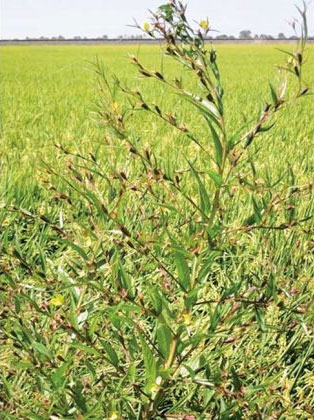Posts Tagged: invasive weeds
Invasive weed threatens California rice
The weed is highly invasive, produces vast quantities of seeds and survives under a wide range of hydrological and climatic conditions.
"Farmers have to keep an eye out for this weed, and let us know if they think they have it," said Luis Espino, UC Cooperative Extension advisor in Colusa, Glenn and Yolo counties, a rice production expert.
Unlike other waterprimroses, the winged primrose willow can grow within flooded rice fields, which makes it even more problematic for local farmers if it should get established in this area, Espino said.
UC farm advisor outlines problems posed by invasive species
Faber said invasive species are being introduced at a rapid rate around the world, and are primarily spread by humans.
He differentiated between non-native plants that are beneficial, such as avocados and citrus, and invasive plants that have been accidentally introduced into an ecosystem where they run rampant.
"An invasive species is something out of place and out of control," he said.
Fresno State report confirms state’s farmers apply water efficiently
Fresno State press release
Claims that California farmers are wasteful and inefficient in managing their water supplies are inaccurate, according to a new report released by Fresno State's Center for Irrigation Technology.
The study is the culmination of a yearlong effort by irrigation experts to update the 1982 University of California Cooperative Extension report “Agricultural Water Conservation in California with Emphasis on the San Joaquin Valley” by David C. Davenport and Robert M. Hagan.
The new study concludes that the 1982 report correctly framed the potential for agricultural water-use efficiency, and many of its findings are still relevant 30 years later.


